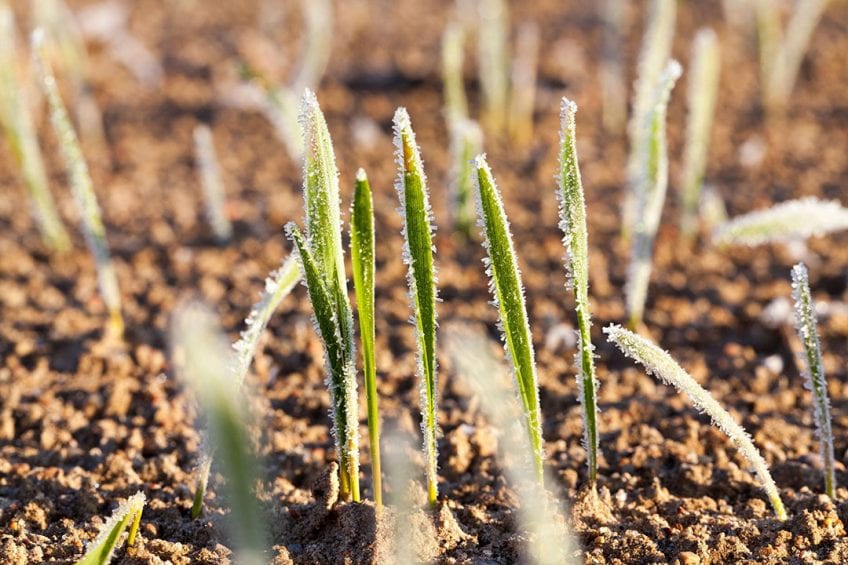Invention makes crop cultivation possible in winter

Growing crops in winter may become possible. Thanks to a discovery by the University of Amsterdam, crops can also grow well at lower temperatures.
The researchers argue that this could greatly increase the production of food crops and biomass. They have created a new kind of molecule that can raise the temperature of plants. In tests in the laboratory and in greenhouses, the molecular heating effect allowed the researchers to increase the temperature of the leaves by more than one degree Celsius.
Increase in biomass
The researchers also saw that application of the miniature heaters can lead to an increase in biomass. “This can extend the growing season, increase the availability of agricultural land and speed up breeding programs for new crop varieties,” the researchers write. The researchers have obtained a patent on the invention.
The molecular heaters were developed by Wybren Jan Buma from the Molecular Photonics group (Van ’t Hoff Institute for Molecular Sciences) and Teun Munnik from the Plant Cell Biology group (Swammerdam Institute for Life Sciences). They collaborated with researchers from the universities of Warwick and Bristol.
Small field tests
The molecular heaters are further explored in the European ‘Boostcrop’ project, which is funded with almost € 5 million from the EU ‘Future and Emerging Technologies’ program. In this research, small field tests are carried out and the safety of the invention is mapped out. In the long term, the researchers envision that the molecular heaters will be applied to crops using a sprayer.
Develop further applications
Molecular heaters can increase crop yield worldwide. If crops can grow at lower ambient temperatures, they can be grown at higher altitudes and closer to the North and South Poles. The growing season can also be extended and plants will develop faster. The researchers are looking for partners to develop further applications.
Molecules in sun creams
The scientists compare the effect of the heaters with that of molecules in sun creams. They absorb ultraviolet light and convert this energy into molecular vibrations. In this way, harmful light is converted into heat. The developed molecules also occur naturally. Plants also produce molecules themselves (such as sinapoyl malate) to protect themselves against UV radiation from the sun.



